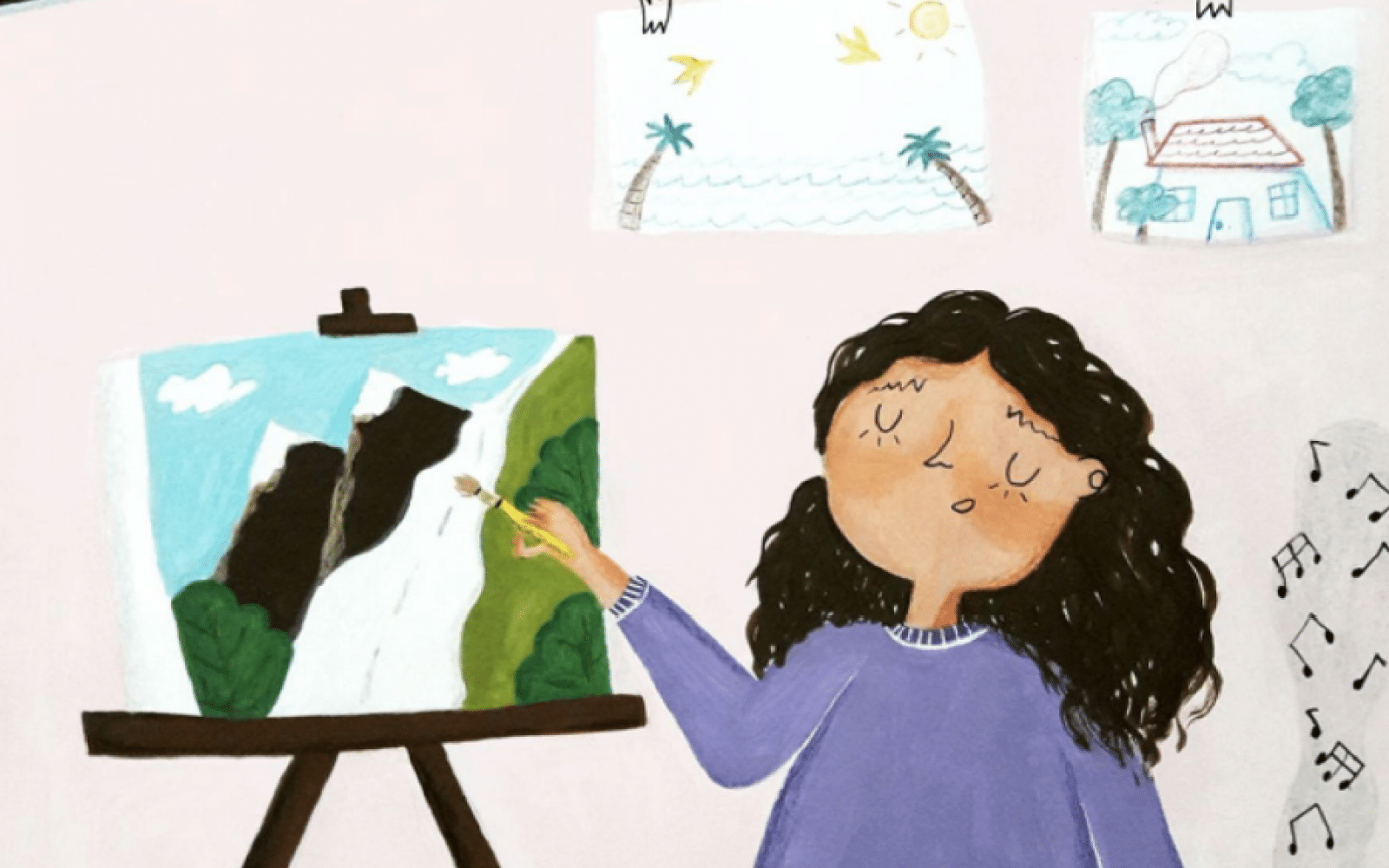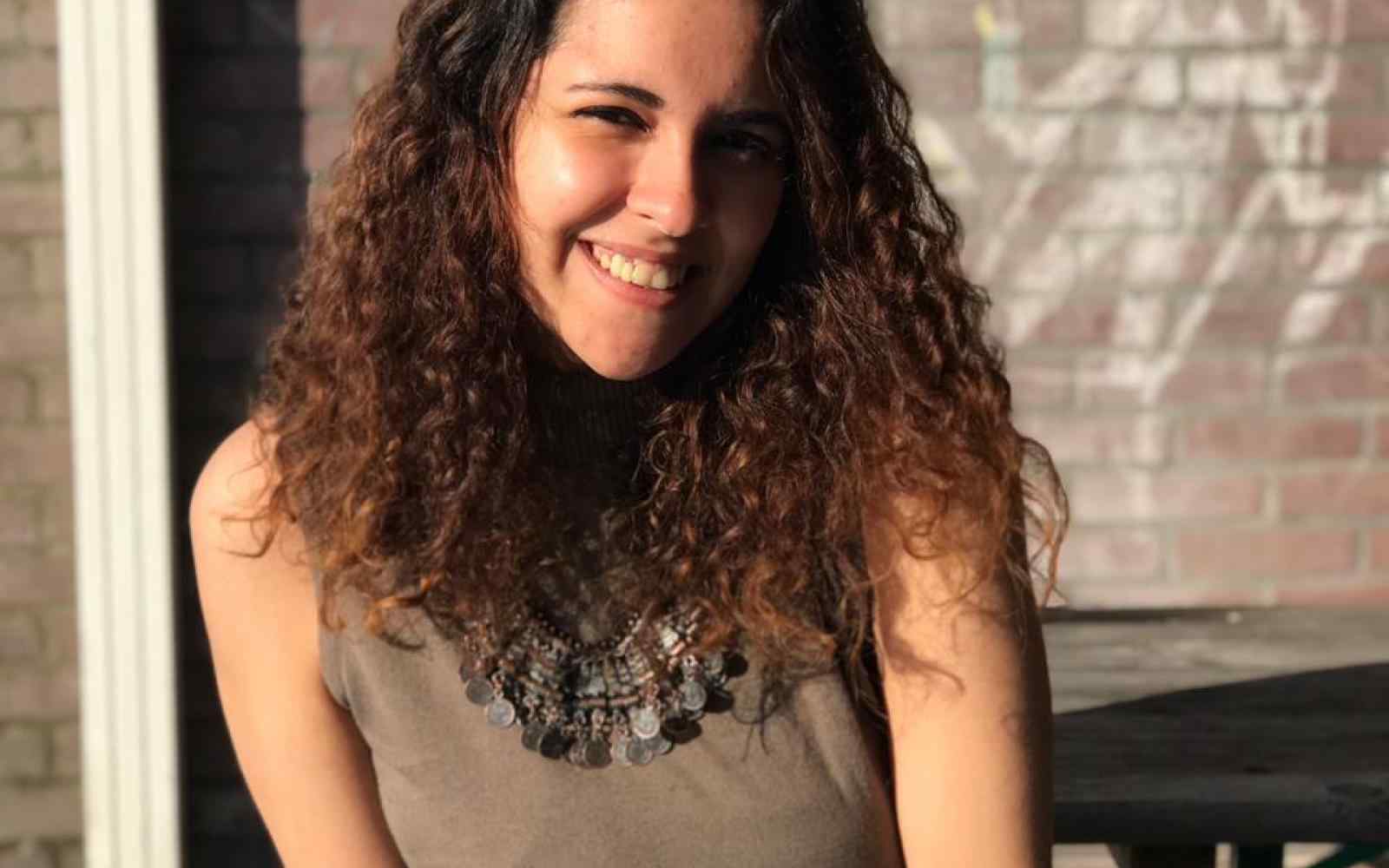Art for All: Amira's Changemaker Journey

The global health crisis has resulted in the Covid-19 that has erupted over the past several months to overthrow societies all over the world, disrupting people's livelihoods and destabilizing the economy. Nevertheless, Ashoka has seen her changemaker community rise to a level appropriate for the event more than ever. Using their creative insights and entrepreneurial abilities, to draw new spaces and frameworks for influence.
The latest group of young people participating in Ashoka the Arab world, winners of the Women Changemakers competition, presented an unexpected challenge to expand their pilot initiatives in light of the coronavirus pandemic. Despite many obstacles and uncertainties, they have preserved their energy in bringing about change and remain committed to their goal of advancing their societies.
Amira Al-Masry, the founder of the "ONAS" initiative, said that her work with young people in the Alexandria Governorate, Egypt, was completely stopped at the beginning of March, with the beginning of the restrictions that were imposed on large gatherings and transportation. Amira said, "We have had to suspend all of our offline activities, but we are working with refugee children who are already facing a lot of social and economic hardship. We were unable to communicate with them online because they do not have internet access." "But we are working on finding solutions to provide financial support so that they can use the Internet and verify what we publish on our page, including educational programs, activities, and competitions."
The "Princess" initiative has benefited from cultivating a culture of art, sympathy, and appreciation of diversity among the youth of Egyptian society, and addressing bullying against refugee children in our society.

Amira started her work in 2019, relying on her passion for drawing, by building a community of Egyptian youth and refugees who provide art workshops to end discrimination and violence against the refugee community in Alexandria. The "ONES" initiative aims to provide a safe space for refugee and Egyptian children to learn, grow together and express themselves through play, dancing, theater, drawing, and painting.
When restrictions were imposed on individuals' gatherings and the curfew was lifted last March, Amira rapidly changed course, defining a new path to reach young people in her community. She explained, "I started using social media such as Facebook to raise awareness about bullying and the discrimination these children face." "We have also launched interactive activities, including a drawing competition, to encourage children to keep presenting art at home."
Through the "Once" art competition, Amira and her team targeted strengthening ties between the youth community in Alexandria, and Amira worked to continue to motivate children to express themselves through art. The "Once" Facebook page was used as a platform to share children's artwork with the public and raise awareness of its vision for change.
In addition to her ongoing efforts to engage the youth group, Amira also used this current time as an opportunity to strengthen her team's capabilities. "We organized as a team an online training on facilitation skills, peacebuilding and dialogue to build our capacity during quarantine," she said.
As Egypt begins to lift the restrictions, Amira and her team prepare to continue their work safely and benefit from what they learned recently. She said, "The main challenge that we face now is the inability to communicate with children via the Internet due to the poor internet service in our neighborhoods. In the following period after the krona, we will set new rules, such as working with fewer children in all of our workplaces and also in a larger space. We are also planning to give them health advice to protect themselves."
Notably, Amira is the leader of a rapidly growing team of vision and initiative where she began her journey of change at a young age. Amira recalls, "My journey with civil society and community service started when I went to college and discovered that life is full of things and that I am not created to live for myself only, and I realized that I have a role and responsibility towards my community. Then I tried to find my passion."
My journey with civil society and community service started when I went to college and discovered that life is full of things and that I am not created to live for myself only, and I realized that I have a role and responsibility towards my community. Then I tried to find my passion
After volunteering with CARE International in an education program targeting migrants and refugees, and a women's rights project, Amira discovered this passion.
“Children who are already facing social and economic hardship need to feel supported, welcome and love,” she explained. The children we work with have been subjected to difficult events of poverty, famine, and war - and have also faced violence and bullying, both inside and outside the home. They need love and the drive to overcome these hardships to become the people they want to be in the future. "
Despite the hurdles her team had overcome in the past, Amira remained determined and committed to making change happen. Reflecting on what she would say to aspiring change leaders, Amira indicated, “I always advise you to be optimistic and motivated - to look for opportunities and not wait for them in the way. I also advise you to think deeply about the problem you want to address to build creative solutions.